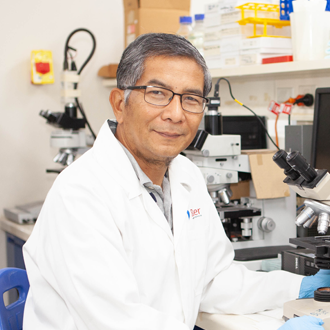About the Inflammation and Cardiovascular Disease laboratory
The Inflammation and Cardiovascular Diseases laboratory uses a multi-disciplinary approach to understand how the immune system and inflammation modulate the pathogenesis of cardiovascular diseases.
Inflammation is a protective response triggered by damage to living cells. This response localises and eliminates the injurious agents, while also removing damaged tissue components so that the body can heal and maintain homeostasis. In cardiovascular diseases, the injury may be caused by internal factors (e.g. myocardial infarction (MI) rather than external factors such as bacteria or viruses). The immune system is largely responsible for initiating inflammation and untreated acute (subclinical) inflammation leads to chronic inflammation that eventually causes cell damage (e.g arteries). Our areas of focus are vascular inflammation (atherosclerosis) and cardiac inflammation (cardiomyopathy).
We will decipher how both adaptive and innate systems contribute to inflammation in cardiovascular diseases in animal models. We aim to translate these findings into practice in both diagnostics for early detection and therapeutics for effective intervention to prevent premature plaque ruptures.
Current research interests
- Better understanding and preventing recurrent myocardial infarctions.
- CD4+ regulatory T cells and preventing/reversing the development of vulnerable atherosclerotic plaques associated with unstable angina and MI/stroke.
- Understanding how gamma-delta T cells contribute to vulnerable plaque development.
- Myocardial inflammation associated with myocardial infarction.
- Diffuse interstitial cardiac fibrosis.



